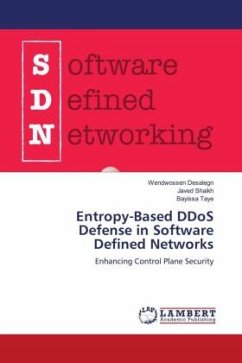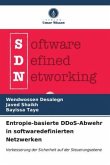As we all know, the architectural framework of software-defined networking (SDN) reduces network managers' work by separating the data plane from the control plane. This makes network deployment easier by providing a programmable interface for application development in areas such as security management, and the centralized logical controller provides greater control over the entire network, which has complete network visibility. The design of a mechanism for implementing a security solution for detecting and mitigating distributed denial of service (DDoS) on the SDN control plane is proposed. The proposed approach will be based on an early detection strategy that is aligned with the standard and used by professionals in the field as a guide for implementing such security solutions. This book describes an approach that was used to identify and mitigate the risks associated with the OpenFlow protocol and its POX controller. The methodology is validated by performing activities in a controlled simulation scenario using the Mininet tool and the SDN controller. The detection algorithm's results were observed through simulation, then implemented into a network testbed.








